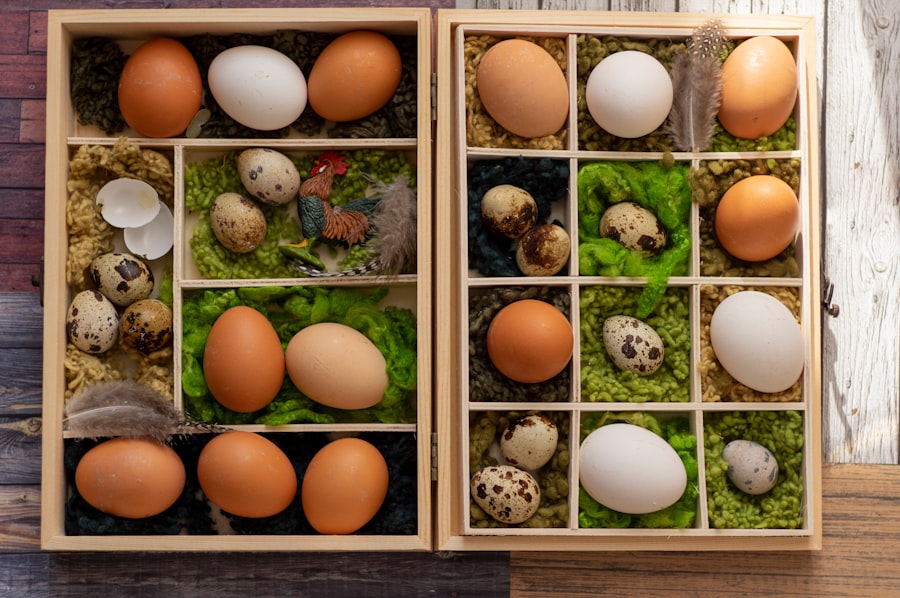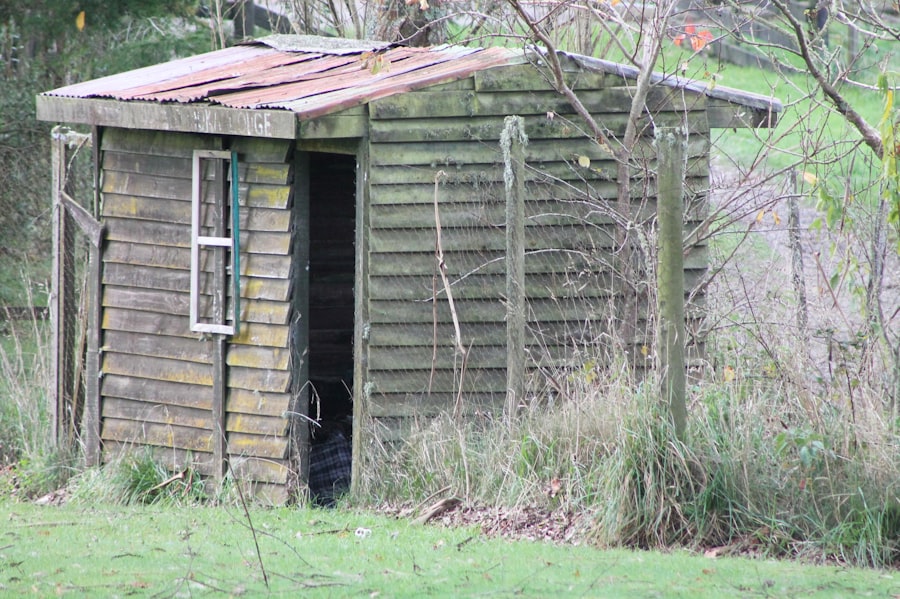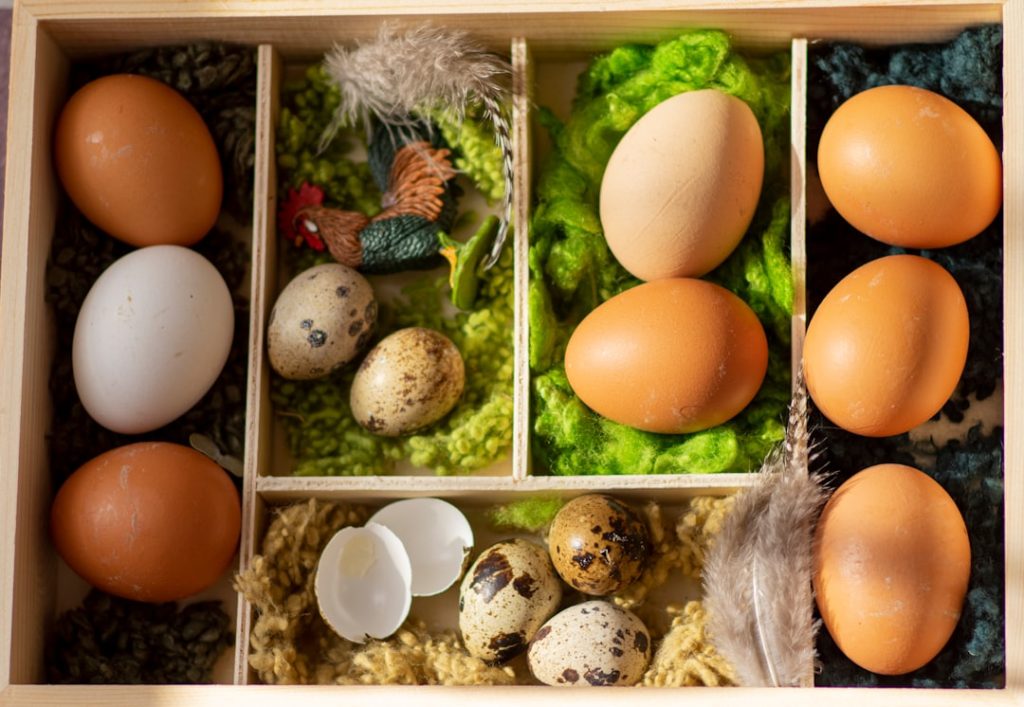When selecting chickens for a backyard coop, several factors should be considered. Climate is a crucial aspect, as some breeds are better adapted to cold weather, while others prefer warmer conditions. The intended purpose of the chickens is also important, whether they are for egg laying, meat production, or both.
Egg-laying breeds like Rhode Island Red and Leghorn are popular choices for those focused on egg production, while Cornish Cross and Plymouth Rock are known for their meat quality. Temperament is another significant factor, especially for families with children or other pets. Some breeds are more docile and friendly, making them easier to handle, while others may be more aggressive or flighty.
Space availability in the backyard should be considered when choosing a breed. Some chickens are better suited for confinement, while others thrive in free-range environments. Smaller breeds like bantams are ideal for limited spaces, whereas larger breeds such as Orpingtons or Australorps require more room to roam and forage.
Lastly, the availability of the chosen breed in the local area is an important consideration. Some breeds are more common and easier to find, while others may be rare and harder to obtain. Selecting a readily available breed ensures easier access to chicks or adult birds when starting or expanding a flock.
By carefully evaluating these factors, backyard chicken keepers can choose breeds that will thrive in their specific environment and meet their individual needs and preferences.
Table of Contents
- 1 Creating a Safe and Comfortable Coop
- 2 Providing Proper Nutrition and Water
- 3 Establishing a Routine for Care and Maintenance
- 4 Monitoring Health and Well-being
- 5 Introducing New Chickens to the Flock
- 6 Handling Behavioral Issues and Conflicts
- 7 FAQs
- 7.1 What are the basic requirements for keeping two chickens?
- 7.2 How much space do two chickens need?
- 7.3 What should be included in a chicken’s diet?
- 7.4 How can I keep my chickens safe from predators?
- 7.5 What are some common health issues in chickens and how can I prevent them?
- 7.6 How can I keep my chickens entertained and happy?
Key Takeaways
- Choose a breed that is well-suited to your climate and intended purpose, whether it be for egg production, meat, or as a pet.
- Ensure the coop is secure from predators, well-ventilated, and provides enough space for the number of chickens you plan to keep.
- Provide a balanced diet of commercial feed, fresh water, and occasional treats like fruits and vegetables.
- Establish a daily routine for feeding, cleaning, and checking for any signs of illness or injury.
- Regularly monitor the health and behavior of your chickens, and seek veterinary care if needed.
- Introduce new chickens to the flock gradually, and monitor for any signs of aggression or bullying.
- Address behavioral issues and conflicts among chickens promptly, and consider separating or rehoming aggressive individuals if necessary.
Creating a Safe and Comfortable Coop
Size and Layout Considerations
Chickens need plenty of room to move around and stretch their wings, so be sure to provide at least 2-3 square feet of space per bird inside the coop, and 8-10 square feet per bird in the outdoor run.
Essential Features for a Comfortable Coop
Additionally, consider the layout of the coop to ensure that there are plenty of roosting bars and nesting boxes for your chickens to rest and lay eggs. It’s also important to provide adequate ventilation to prevent moisture buildup and ammonia levels from rising. This can be achieved through windows, vents, or a combination of both.
Materials and Bedding for a Safe and Comfortable Coop
In addition to size and layout, it’s important to consider the materials used in constructing the coop. The coop should be sturdy and predator-proof to keep your chickens safe from potential threats like raccoons, foxes, and birds of prey. Use hardware cloth instead of chicken wire for added protection against predators. Additionally, consider using non-toxic materials for the coop to ensure the safety of your chickens. Finally, provide plenty of bedding such as straw or wood shavings to keep your chickens comfortable and warm. By carefully considering the size, layout, materials, and bedding of your coop, you can create a safe and comfortable environment for your chickens to thrive.
Providing Proper Nutrition and Water

Proper nutrition and access to clean water are essential for the health and well-being of your backyard chickens. When it comes to feeding your flock, it’s important to provide a balanced diet that meets their specific nutritional needs. This typically includes a commercial feed that is formulated for laying hens or meat birds, as well as access to fresh fruits and vegetables, grains, and protein sources like mealworms or kitchen scraps.
Be sure to provide enough feed for your chickens to eat throughout the day, but avoid overfeeding as this can lead to obesity and other health issues. Additionally, consider using feeders that are designed to prevent waste and keep the feed dry and clean. In addition to providing a balanced diet, it’s important to ensure that your chickens have access to clean water at all times.
Water is essential for digestion, temperature regulation, and overall health. Be sure to provide waterers that are designed to prevent spills and contamination, and clean them regularly to prevent the growth of harmful bacteria. In colder climates, consider using heated waterers to prevent freezing during the winter months.
By providing proper nutrition and access to clean water, you can ensure that your backyard chickens stay healthy and happy.
Establishing a Routine for Care and Maintenance
Establishing a routine for care and maintenance is essential for keeping your backyard chickens healthy and thriving. When it comes to daily care, be sure to check on your chickens regularly to ensure that they have enough food and water, and that their coop is clean and comfortable. This includes collecting eggs daily, refilling feeders and waterers as needed, and removing soiled bedding from the coop.
Additionally, take time each day to observe your chickens for any signs of illness or injury, as early detection is key to preventing potential health issues. In addition to daily care, it’s important to establish a regular schedule for tasks like coop cleaning, parasite control, and health maintenance. This might include weekly or monthly deep cleanings of the coop, regular deworming treatments, and routine health checks by a veterinarian.
By establishing a routine for care and maintenance, you can ensure that your backyard chickens receive the attention and support they need to stay healthy and happy.
Monitoring Health and Well-being
Monitoring the health and well-being of your backyard chickens is essential for early detection of potential issues and ensuring their overall welfare. When it comes to monitoring their health, be sure to observe your chickens regularly for any signs of illness or injury. This might include changes in behavior, appetite, or egg production, as well as physical symptoms like lethargy, respiratory issues, or abnormal droppings.
Additionally, be sure to handle your chickens regularly to check for any lumps, bumps, or injuries that may require attention. In addition to regular observation, it’s important to establish a relationship with a veterinarian who specializes in poultry care. A knowledgeable veterinarian can provide guidance on preventive care measures like vaccinations and parasite control, as well as treatment options for common health issues like respiratory infections or egg binding.
Additionally, consider keeping a detailed record of your chickens’ health history, including vaccinations, treatments, and any notable observations. By monitoring the health and well-being of your backyard chickens on a regular basis and seeking professional guidance when needed, you can ensure that they receive the care they need to stay healthy and happy.
Introducing New Chickens to the Flock

Quarantine and Observation
When adding new birds to your flock, it’s essential to quarantine them for at least 30 days before introducing them to your existing chickens. This helps prevent the spread of potential diseases or parasites that new birds may carry. During this quarantine period, observe the new birds for any signs of illness or behavioral issues that may need attention.
Gradual Introduction
Once the quarantine period is complete, it’s time to introduce the new birds to your existing flock. This should be done gradually over a period of several weeks to allow the chickens to establish a new pecking order without causing undue stress or conflict. Start by placing the new birds in a separate but adjacent enclosure within the same coop or run so that they can see and interact with each other without direct physical contact.
Monitoring and Integration
After a few days, allow supervised interactions between the new birds and the existing flock during free-range time outside of the coop. Observe their behavior closely during these interactions to ensure that there is no excessive aggression or bullying. As the new birds become more familiar with each other and establish their place within the flock hierarchy, you can gradually increase their time together until they are fully integrated into the existing flock. Be prepared for some minor squabbles as they establish their pecking order, but intervene if any aggression becomes excessive or leads to injury.
Handling Behavioral Issues and Conflicts
Handling behavioral issues and conflicts within your backyard chicken flock is an important part of maintaining a harmonious environment for all birds involved. Chickens are social animals with complex social structures, so it’s natural for them to engage in behaviors like pecking order disputes or territorial squabbles from time to time. However, it’s important for chicken keepers to intervene when necessary to prevent excessive aggression or injury.
When handling behavioral issues within your flock, it’s important to observe their interactions closely to identify any potential triggers or patterns of behavior that may be contributing to conflicts. This might include issues like overcrowding in the coop or run, limited access to food or water, or stressors like loud noises or sudden movements. By identifying potential triggers for behavioral issues within your flock, you can take steps to address these underlying causes and reduce the likelihood of conflicts.
In addition to addressing potential triggers for behavioral issues, it’s important to intervene directly when conflicts arise within your flock. This might include separating birds that are engaging in excessive aggression or bullying behavior until they have had time to cool off and re-establish their social dynamics. Additionally, consider providing distractions like hanging treats or toys in the coop or run to redirect their focus away from potential sources of conflict.
By addressing potential triggers for behavioral issues within your flock and intervening directly when conflicts arise, you can help maintain a peaceful and harmonious environment for all of your backyard chickens. Remember that each bird has its own unique personality and social dynamics within the flock, so be patient and observant as you work through any behavioral issues that may arise. In conclusion, keeping backyard chickens can be a rewarding experience that provides fresh eggs, natural pest control in your yard or garden, and an opportunity for sustainable living practices.
By carefully choosing the right breed of chickens for your specific needs and preferences; creating a safe and comfortable coop; providing proper nutrition and water; establishing a routine for care and maintenance; monitoring health and well-being; introducing new chickens to the flock; and handling behavioral issues and conflicts with patience and care; you can ensure that your backyard chickens thrive in their environment while providing joy and benefits for you as their caretaker.
If you’re looking for tips on how to keep two chickens, you might also be interested in this article on building a farmhouse chicken coop. Creating a suitable living space for your chickens is essential for their health and well-being, and this article provides valuable insights on how to design and construct a coop that meets their needs.
FAQs
What are the basic requirements for keeping two chickens?
Basic requirements for keeping two chickens include a secure coop or housing, access to fresh water, a balanced diet of chicken feed, and regular veterinary care.
How much space do two chickens need?
Two chickens need at least 10 square feet of coop space and 20 square feet of outdoor space to roam and forage.
What should be included in a chicken’s diet?
A chicken’s diet should include a balanced chicken feed, fresh water, and occasional treats such as fruits, vegetables, and mealworms.
How can I keep my chickens safe from predators?
To keep chickens safe from predators, ensure their coop is secure with strong fencing, lock them up at night, and consider using motion-activated lights or alarms to deter predators.
What are some common health issues in chickens and how can I prevent them?
Common health issues in chickens include parasites, respiratory infections, and egg-laying problems. To prevent these issues, provide regular veterinary care, keep the coop clean, and practice good hygiene.
How can I keep my chickens entertained and happy?
To keep chickens entertained and happy, provide them with perches, dust baths, and access to outdoor space for foraging. Additionally, consider introducing new toys or treats to keep them stimulated.
Meet Walter, the feathered-friend fanatic of Florida! Nestled in the sunshine state, Walter struts through life with his feathered companions, clucking his way to happiness. With a coop that’s fancier than a five-star hotel, he’s the Don Juan of the chicken world. When he’s not teaching his hens to do the cha-cha, you’ll find him in a heated debate with his prized rooster, Sir Clucks-a-Lot. Walter’s poultry passion is no yolk; he’s the sunny-side-up guy you never knew you needed in your flock of friends!







